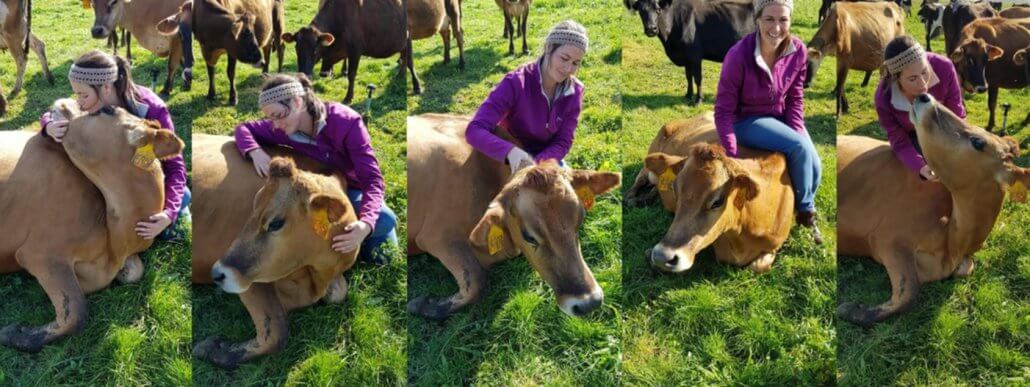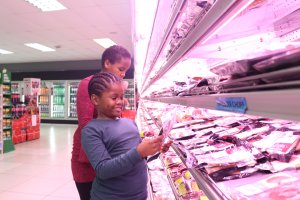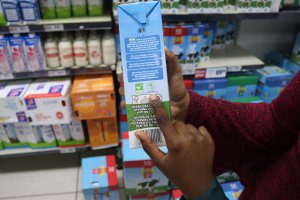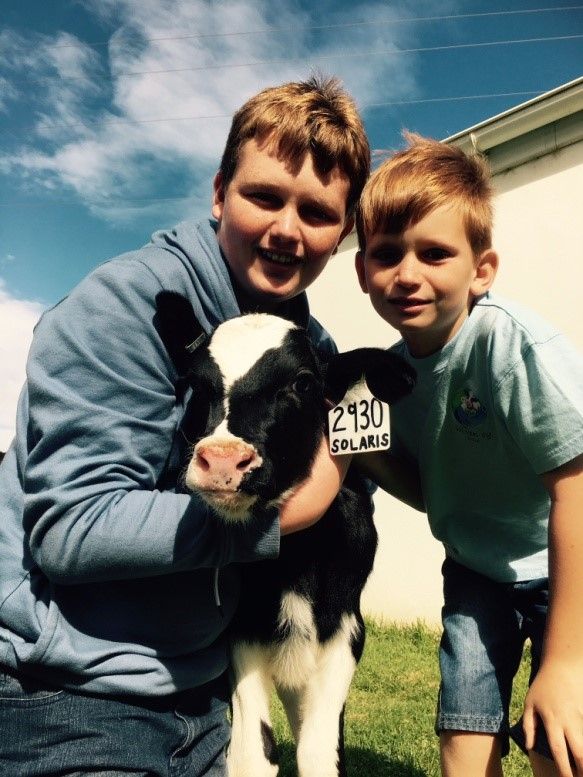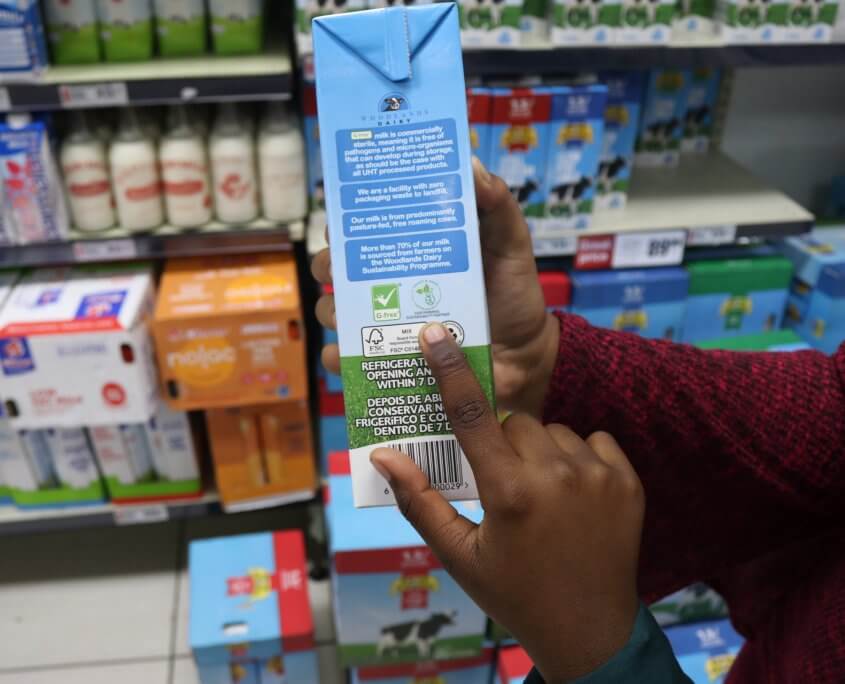Two questions that I used to be curious about before I was exposed to the world of farming with animals were: 1) are animals happy on farms and 2) do farmers really love their animals?
Interestingly, these are the same questions that my 2 nieces asked me when they learned about my job. If my 8- and 12-year-old nieces can ask these questions, I must assume that these are questions consumers are curious about too.
I think most consumers generally want to know that the milk they are about to drink came from animals that were…well… happy and loved. It’s not a bad thing to want.
More than ever, I think it is important to want to know that the food you eat was raised in an ethical, sustainable, and yes, even loving, environment. This wanting to know is not only important for the reasons associated with animal welfare, but also for food security.
My inquisitive nieces helping to find meat and milk from happy animals
When I was a little girl, we had various animals at home, but we never really planned out what they ate or even ensured that they get sufficient food for the day. The MO in most rural homes is that each homestead just sends their animals to the veld to graze, whether they get full or not is never well thought-out.
Considering what a big role these animals play in each home’s food security, there should probably be better planning. I am mentioning this because I realised when I started in this job that farmers actually treat their farm animals a lot better than we had at home.
I realised that farmers love their animals beyond the fact that they produce meat, milk or wool. Farmers generally have an amazing relationship with their animals.
In every conversation that I have had with a farmer, he/she refers to his/her animals as “she” when referring to dairy cows, as opposed to the grammatically acceptable “it”. This is just one way that shows a more personal relationship between farmers and their animals.
I recently saw this picture of a farmer playing with and caressing her cow with such joy. I don’t know how she does it, because whenever I try to walk towards a cow, she just moves away, no matter how much I am showing my “I mean no harm smile”.
Over the years, I have seen massive shifts in agriculture. One of the greatest shifts has been people leaving the farm for other more “lucrative” and “fancy” jobs. In literature, it is reported that in the early part of the 20th century, over 30% of the population was involved in farming. Today, that figure has dropped to less than 2%. I definitely see how this can be true, especially in the smallholder farming sector.
The sheep, goats and cows we used to have at home are no longer there. In fact, most of the people in my village no longer have animals. Only a few have a couple of domesticated chickens.
It comes as no surprise to me that the public will know less and less about how their food is raised. To fill the gap, consumers will, therefore, have to ask questions. Unfortunately, the questions asked and the assumptions made often oversimplify a complex topic, or sometimes miss the mark entirely.
Are animals happy on the farm?
Let’s take, for instance, the question that my nieces asked: “Are animals happy on the farm?” Below, I will discuss how animals are treated on farms, and from that, you can decide for yourself whether animals are happy or not.
Farmers do their very best to make sure their girls are comfortable. Comfortable cows give more milk and have fewer health problems. They make sure they are well-fed. They work with a nutritionist who helps them plan out a healthy diet for the cows.
Farmers make sure that their animals are healthy. They work closely with veterinarians that visit the farm regularly. These vets do routine vaccinations, pregnancy checks, and help assess overall herd health. On any given day, a farmer will know if a cow is not feeling well. For example, if she lingers at the back of the herd when she is normally the first at the feed trough, this tells a farmer the cow is not well.
Farmers everywhere are pretty much in tune with their animals. Anyone that has worked in animal agriculture will tell you that if an animal is “unhappy,” it will not perform well. Keeping their animals “happy” is in the farmer’s best interest because unhappy cows give less milk.
Do farmers love their animals?
This question is a far easier one to answer. Working with animals every day, 365 days a year, through summer heat and freezing winters, watching them closely for any signs of a problem, and caring for their every need over a lifetime, creates a bond like no other.
The relationship between a farmer and his/her animals is a complicated one though. In as much as a farmer loves his/her animals, the act of farming is still a business in which his/her family, and millions of people, rely on for food.
Now, a farmer may love his/her cows and want to make them comfortable, but sometimes a cow will have too many problems and fixing them would be financially impossible. This would mean compromising the business, and the production of that business.
Be on the lookout for the Trace and Save logo
When farmers cannot remain profitable it means fewer farmers to produce food for us. Fewer farmers mean increases in food prices, and who suffers the most when the price of food goes up? The consumer. With all these projected knock-on effects, does the farmer keep her or not?
Believe it or not, none of these decisions are easy for farmers. It is a continuous challenge for farmers to find the right balance between seeing to their animals’ needs while earning an income that will pay the farm costs and keep the farm going.
The point that I am trying to get to with this blog, is that farming with animals is not an easy task. I will refer to my earlier statement where I said: “Farmers do their very best to make sure their girls are comfortable”. With Trace and Save’s sustainability measures, as a consumer, you are guaranteed that the box of milk you buy is sourced from a farm that treats animals, and the environment, well.
- The management of soils with excessive sodium and magnesium levels - 2023-06-12
- Understanding evapotranspiration better - 2021-10-18
- Soil fungi connections - 2021-09-28

